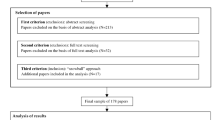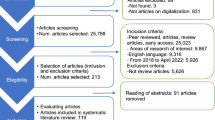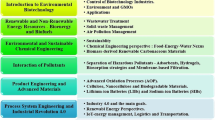Abstract
Despite the increasing use of digital technology in industrial production, how industrial digitalization affects the environmental performance of production activities remains unclear. This research contributes to the literature on the relationship between industrial digitalization and enterprise environmental performance by employing a large sample of Chinese manufacturing enterprises. Results indicate that the environmental performance of manufacturing enterprises has been significantly improved in the process of industrial digital transformation. Structural and technology effects are the transmission channels; additionally, structural effect is the main contributor to the positive environmental effects of information and communications technology (ICT) penetration. Industrial digitalization reduces the production scale of heavy-polluting enterprises and improves product innovation and green total factor productivity, but it has an insignificant effect on total factor productivity. Moreover, industrial digitalization improves enterprise environmental performance by introducing front-end cleaner production technologies, rather than by increasing pipe-end pollutant treatment facilities.
Similar content being viewed by others
Data and materials availability
Data are available from the authors upon request.
References
Acemoglu D, Dorn D, Hanson GH, Price B (2014) Return of the Solow paradox? IT, productivity, and employment in US manufacturing. Am Econ Rev 104(5):394–399
Avom D, Nkengfack H, Fotio HK, Totouom A (2020) ICT and environmental quality in Sub-Saharan Africa: effects and transmission channels. Technol Forecast Soc Chang 155:120028
Beier G, Niehoff S, Xue B (2018) More sustainability in industry through industrial internet of things? Appl Sci 8(2):219
Berkhout F, Hertin J (2001) Impacts of information and communication technologies on environmental sustainability: speculations and evidence. Report to the OECD, Brighton, p 21
Cherniwchan J (2012) Economic growth, industrialization, and the environment. Resour Energy Econ 34(4):442–467
Clarkson PM, Overell MB, Chapple L (2011) Environmental reporting and its relation to corporate environmental performance. Abacus 47(1):27–60
Dedrick J (2010) Green IS: concepts and issues for information systems research. Commun Assoc Inf Syst 27(1):11
DeStefano T, Kneller R, Timmis J (2018) Broadband infrastructure, ICT use and firm performance: Evidence for UK firms. J Econ Behav Organ 155:110–139
Hao Y, Guo Y, Guo Y, Wu H, Ren S (2020) Does outward foreign direct investment (OFDI) affect the home country’s environmental quality? The case of China. Struct Chang Econ Dyn 52:109–119
Haseeb A, Xia E, Saud S, Ahmad A, Khurshid H (2019) Does information and communication technologies improve environmental quality in the era of globalization? An empirical analysis. Environ Sci Pollut Res 26(9):8594–8608
Higón DA, Gholami R, Shirazi F (2017) ICT and environmental sustainability: a global perspective. Telematics Inform 34(4):85–95
Hu D, Feng C, Liang L, Wu P, Du Y (2019) Environmental performance of Chinese listing manufacturing enterprise: from investment perspective. Environ Sci Pollut Res 26(7):6625–6635
Hu M, Li R, You W, Liu Y, Lee CC (2020) Spatiotemporal evolution of decoupling and driving forces of CO2 emissions on economic growth along the Belt and Road. J Clean Prod 277:123272
Khan D (2019) Effects of information and communication technology and real income on co2 emissions: the experience of countries along belt and road. Telematics Inform 45:101300
Kunkel S, Matthess M (2020) Digital transformation and environmental sustainability in industry: Putting expectations in Asian and African policies into perspective. Environ Sci Pol 112:318–329
Lange S, Pohl J, Santarius T (2020) Digitalization and energy consumption. Does ICT reduce energy demand? Ecol Econ 176:106760
Li Y, Dai J, Cui L (2020) The impact of digital technologies on economic and environmental performance in the context of industry 4.0: a moderated mediation model. Int J Prod Econ 229:107777
Lu WC (2018) The impacts of information and communication technology, energy consumption, financial development, and economic growth on carbon dioxide emissions in 12 Asian countries. Mitig Adapt Strateg Glob Chang 23(8):1351–1365
Martínez-Caro E, Cegarra-Navarro JG, Alfonso-Ruiz FJ (2020) Digital technologies and firm performance: the role of digital organisational culture. Technol Forecast Soc Chang 154:119962
Neuhofer B, Buhalis D, Ladkin A (2015) Smart technologies for personalized experiences: a case study in the hospitality domain. Electron Mark 25(3):243–254
Oliner SD, Sichel DE (2000) The resurgence of growth in the late 1990s: is information technology the story? J Econ Perspect 14(4):3–22
Papyrakis E, Gerlagh R (2004) The resource curse hypothesis and its transmission channels. J Comp Econ 32(1):181–193
Park Y, Meng F, Baloch MA (2018) The effect of ICT, financial development, growth, and trade openness on CO2 emissions: an empirical analysis. Environ Sci Pollut Res 25(30):30708–30719
Ren S, Hao Y, Xu L, Wu H, Ba N (2021) Digitalization and energy: How does internet development affect China’s energy consumption? Energy Econ 98:105220
Salahuddin M, Alam K (2016) Information and communication technology, electricity consumption and economic growth in OECD countries: a panel data analysis. Int J Electr Power Energy Syst 76:185–193
Škare M, Soriano DR (2020) A dynamic panel study on digitalization and firm's agility: what drives agility in advanced economies 2009–2018. Technol Forecast Soc Chang 163:120418
Vu KM, Asongu S (2020) Backwardness advantage and economic growth in the information age: a cross-country empirical study. Technol Forecast Soc Chang 159:120197
Wang Y, Hangm Y, Wang Q, Zhou D, Su B (2021) Cleaner production vs end-of-pipe treatment: evidence from industrial SO2 emissions abatement in China. J Environ Manag 277:111429
Wen H, Lee CC (2020) Impact of fiscal decentralization on firm environmental performance: evidence from a county-level fiscal reform in China. Environ Sci Pollut Res 27(29):36147–36159
Wen H, Lee CC, Zhou F (2021) Green credit policy, credit allocation efficiency and upgrade of energy-intensive enterprises. Energy Econ 94:105099
Yuan H, Feng Y, Lee CC, Cen Y (2020) How does manufacturing agglomeration affect green economic efficiency? Energy Econ 92:104944
Zhang D, Li J, Ji Q (2020) Does better access to credit help reduce energy intensity in China? Evidence from manufacturing firms. Energy Policy 145:111710
Zhou X, Zhou D, Wang Q, Su B (2019) How information and communication technology drives carbon emissions: a sector-level analysis for China. Energy Econ 81:380–392
Funding
This project is supported by the Youth Program of National Social Science Foundation of China (grant no. 20CJY031).
Author information
Authors and Affiliations
Contributions
Huwei Wen: resources, methodology, formal analysis, writing (review and editing).
Chien-Chiang Lee: conceptualization, supervision, writing (review and editing), corresponding author.
Ziyu Song: data curation, visualization, writing (original draft).
All authors provided critical feedback and helped shape the research, analysis, and manuscript.
Corresponding author
Ethics declarations
Ethical approval
This is an original article that did not use other information that requires ethical approval.
Consent to participate
All authors participated in this article.
Consent to publish
All authors have given consent to the publication of this article.
Conflict of interest
The authors declare no competing interests.
Additional information
Responsible Editor: Ilhan Ozturk
Publisher’s note
Springer Nature remains neutral with regard to jurisdictional claims in published maps and institutional affiliations.
Rights and permissions
About this article
Cite this article
Wen, H., Lee, CC. & Song, Z. Digitalization and environment: how does ICT affect enterprise environmental performance?. Environ Sci Pollut Res 28, 54826–54841 (2021). https://doi.org/10.1007/s11356-021-14474-5
Received:
Accepted:
Published:
Issue Date:
DOI: https://doi.org/10.1007/s11356-021-14474-5
Keywords
- Industrial digitalization
- Environmental performance
- Structural effect
- Technology effect
- Information and communications technology (ICT)





